Molto bella, complimenti a Peppe74 per la chiacchierata con l'autore!
Ma fregeranno la scatola con il logo del premio?
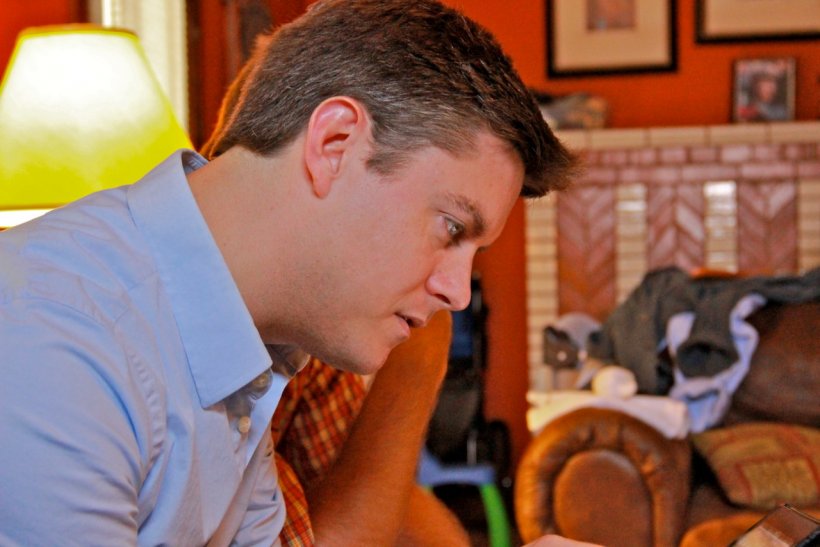
Vincitore del premio Scelto dai Goblin 2017, ecco Scythe, uno dei giochi da tavolo più apprezzati ma anche più discussi dello scorso anno. Oggi intervistiamo il suo autore.
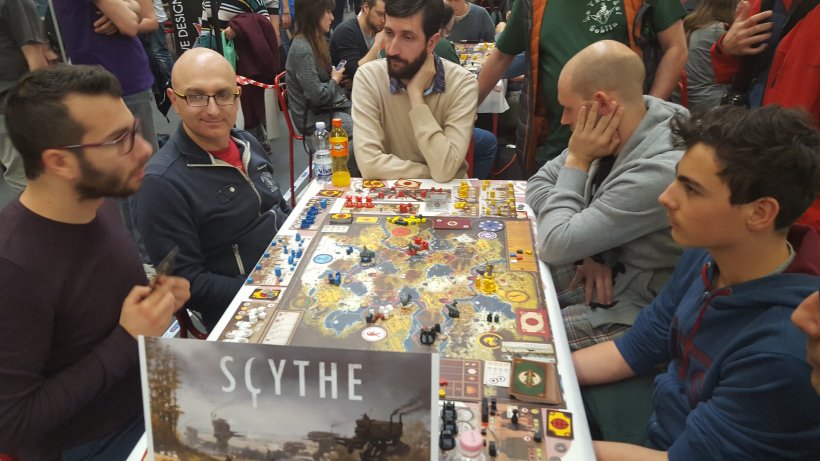
1) Facci sapere qualcosa di te: che tipo di giocatore sei? Parlaci dei tuoi giochi preferiti (non realizzati da te).
Per il mio stile di gioco mi piace esplorare una strategia ottimale e interessante e, allo stesso tempo, assicurarmi che tutti al tavolo si stiano divertendo. Non farei mai qualcosa che rovini l’esperienza altrui. Al momento I miei tre giochi preferiti sono: Castles of Mad King Ludwig, Isle of Skye, e TIME Stories.
2) Il tuo gioco lo definiresti “euro”, “american”, oppure “ibrido”? E perché?
Scythe è un Euro game, un gioco di costruzione, con un pizzico di interazione per il controllo territorio. C’è il combattimento, che non è tipico dei giochi Euro, ma non capita sovente, ed è completamente deterministico in quanto il giocatore ha il completo controllo di cosa vuole investire nel combattimento.

3) Scythe ha vinto il nostro “Scelto dai Goblin” che è assegnato da una votazione popolare. Inoltre è molto in alto nella classifica BGG. Te lo aspettavi questo successo? Qual è il segreto, secondo te?
Mi sento onorato del premio! La mia idea di successo è che la gente si diverta a giocare i giochi che creo. Forse non tutti, ma alcuni, auspicabilmente tanti. Quindi non mi aspettavo che Scythe arrivasse nella Top 10 di BGG, o che vincesse tanti premi e che vendesse 100,000 copie in una dozzina di lingue differenti, ma sapevo dal nostro playtest che la gente si divertiva a giocarlo. Forse questo è il segreto: fai provare il gioco a tanti e puoi sapere se è valido.
4) Se dovessi rispondere alla domanda precedente, come giocatore, direi che Scythe è un gioco che può essere apprezzato sia dai giocatori euro che American, con un gameplay solido, fantastici materiali, un’interazione diretta ben implementata e non frustante, con azioni semplici e veloci che sottendono una profonda struttura di gioco, e un buon bilanciamento tra strategia e tattica. Possiamo dire che il futuro dei giochi è nel giusto mix di questi aspetti?
Avevo risposto alla domanda precedente senza leggere questa, e la tua risposta mi piace! In realtà ho dei dubbi a dire che “il futuro dei giochi” è qualcosa di così specifico. Penso che vedremo più ibridi, come Scythe, Kemet, Adrenaline, ecc. Ma vedremo anche una pletora di puri euro e ameritrash.
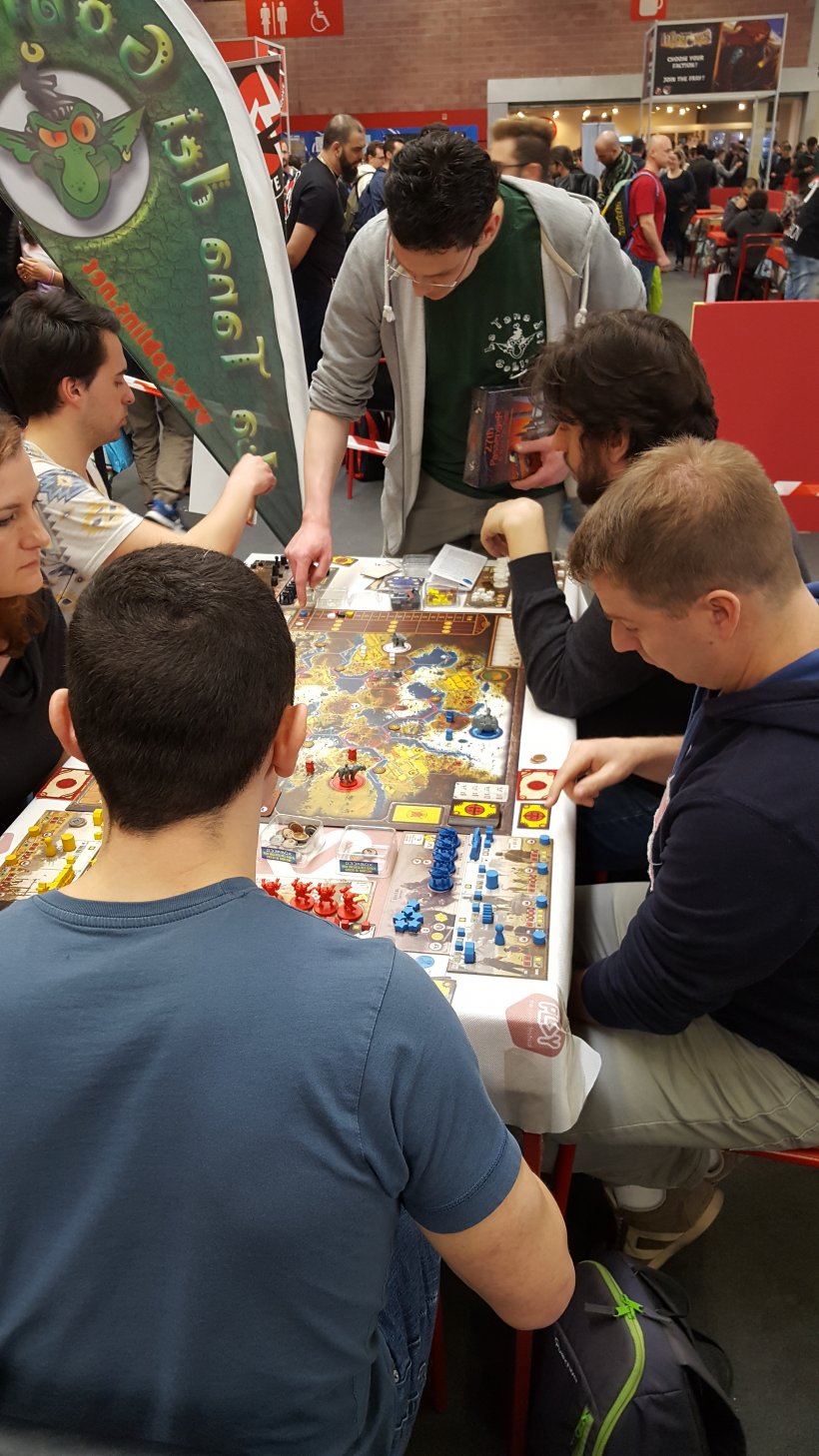
5) Pensi che ci sia stata un’evoluzione nel tuo modo di progettare I giochi a partire dai primi lavori? E in quali aspetti?
Adesso pongo molta più attenzione nel “flusso” di gioco, oltre che a preoccuparmi di quanto sia facile spiegare ed imparare un gioco. Adesso penso costantemente a questi aspetti quando devo progettare un gioco. Per “flusso” intendo come ogni turno converge nel successivo, mi piace che I giocatori siano concentrati al “momento”, senza pensare a meccanismi come fasi o round. Visto che I miei giochi stanno diventando più complessi, diventano più difficili da spiegare, e io mi preoccupo di realizzare componenti o elementi adeguati per facilitare questo processo (come i fogli guida di Scythe, o il regolamento ridotto all’osso di Chartestone).
6) Un giocatore che guarda l’immagine della scatola si immagina combattimenti con mech giganteschi. Poi potrebbe restare deluso dalla risoluzione matematica dei combattimenti e dalla loro scarsità. Oppure, semplicemente, questi giocatori non hanno colto lo spirito del gioco. Quale obiettivo avevi quando hai scelto quel tema e il conseguente gameplay?
É vero, la copertina riporta una delle poche illustrazioni nel gioco che mostrano un combattimento in corso, e quindi può creare un po’ confusione. Le altre illustrazioni sono meglio rappresentative dell’ambientazione, che riguarda un mondo dove la guerra è oltrepassata. C'è ancora la minaccia della battaglia, che è un aspetto fondamentale del gioco, ma il combattimento stesso è abbastanza raro. Per quanto riguarda il tema, la grafica e la creazione del mondo fittizio di Scythe erano già nelle mani di Jakub (Jakub Rozalski) fin dall'inizio, pertanto ho considerato mio compito adattare le meccaniche alla sua opera.
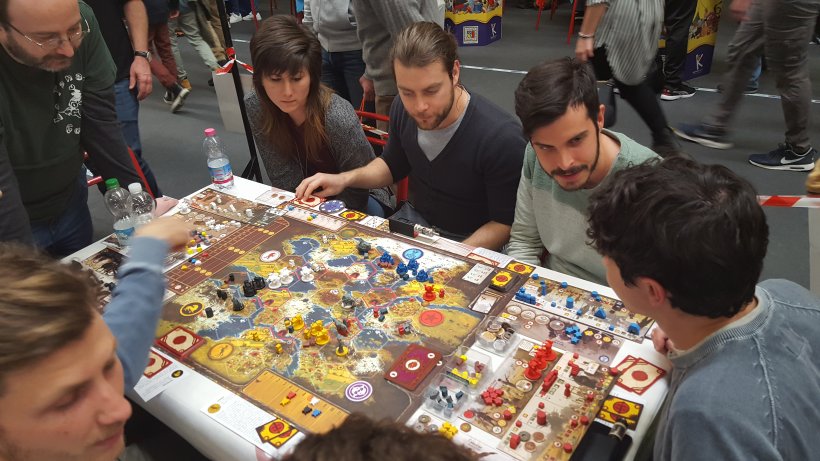
7) Il bilanciamento è un aspetto importante in giochi come questo. Differenti fazioni, differenti posizioni di partenza, differenti plance...sei soddisfatto del livello raggiunto? Cosa pensi della house-rule che prevede di giocare in ordine crescente della plancia? Molti giocatori la adottano, per compensare il vantaggio di avere più risorse.
Non so se sarò mai soddisfatto al 100% del bilanciamento. Lo abbiamo testato a fondo – più di 1000 playtest ciechi – che sono tanti, ma Scythe è stato giocato centinaia di migliaia di volte da allora. Una cosa che avrei voluto evitare è che I Russi sono troppo forti quando giocano con la plancia Industriale, pertanto invito a non usare questa combinazione.
Le risorse di partenza sulle plance sono differenziate in base a due fattori (entrambi con un impatto minore sul gioco):
Così, anche se la plancia #5 è nella seconda posizione in senso orario, parte del bilanciamento delle risorse di partenza per quella plancia è dovuto al fatto che la plancia #5 sembrava essere sempre leggermente più debole delle altre durante i playtest.
Nel complesso l’impatto sul gioco è trascurabile. Se si preferisce distribuire le plance in senso orario in base al numero questo non rompe il gioco e non ha conseguenze negative.
8) Kickstarter, Legacy, applicazioni per SmartPhones. Tre cose che sembrano invadere e cambiare il mondo dei giochi da tavolo. Hai un parere positivo o negativo su ciascuno di essi?
Ho scritto un blog approfondito su Kickstarter ed ho scritto un libro sul finanziamento dal basso. La mia compagnia non sarebbe mai esistita senza questa piattaforma, e anche se non la utilizzerò nel futuro, penso sia un fantastico mezzo per gli autori per iniziare e crescere. Riguardo I giochi legay, sono tra I miei preferiti, ho speso gli ultimi 18 mesi a crearne uno, Charterstone.
Per le app su smartphone... personalmente non voglio guardare lo schermo di un telefono mentre gioco. Tuttavia, è bello vedere come gli autori stanno facendo cose intelligenti con smartphone e non vorrei mai scoraggiare la creatività.
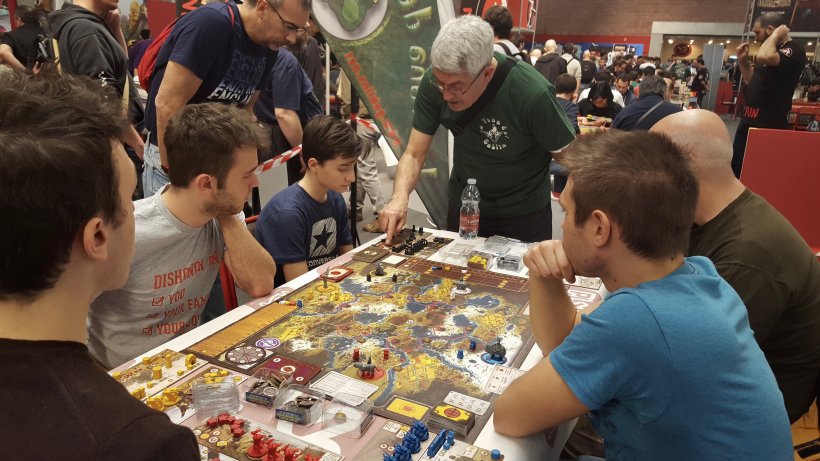
9) Hai giocato gli altri sette selezionati del nostro premio? Cosa ne pensi?
Non ho giocato Tramways, Tragedy Looper e Pax Renaissance.
10) A quali nuovi giochi stai lavorando? Raccontaci un po’ dei progetti futuri.
Charterstone è un gioco legacy che tratta della costruzione di un villaggio, sta per entrare in produzione e sarà rilasciato in 10 lingue (italiano incluso) per Ottobre/Novembre. Abbiamo anche un’espansione per Between Two Cities prevista per Luglio e una nuova espansione per Scythe a Novembre. Nel frattempo sto sviluppando un gioco di un autore esterno e sto anche lavorando a due giochi coperativi, un gioco a squadre e un gioco sulla manipolazione del tempo.
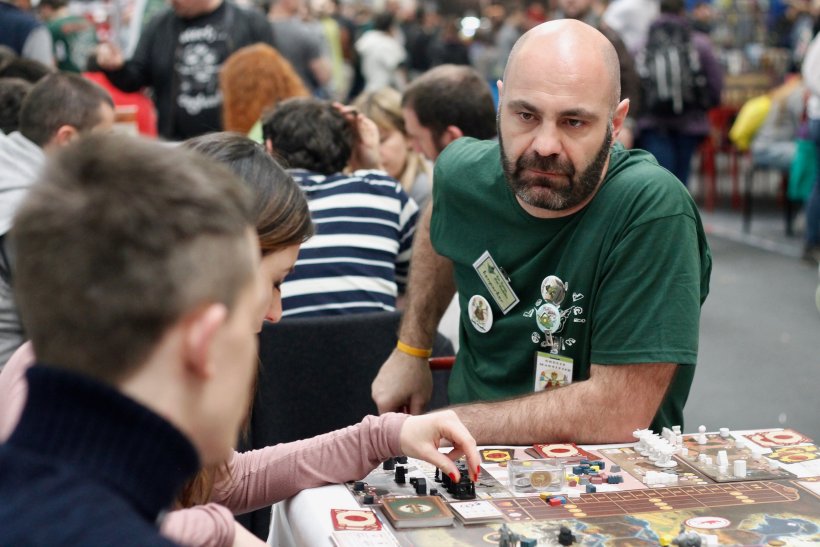
1) Tell us something about you: what kind of player are you? Tell us your favourite games (not made by you).
My style of play is that I like to find an optimized but interesting strategy while ensuring that everyone at the table is having a good time. I never want to do something that will ruin someone else’s experience. Currently my top 3 favorite games are Castles of Mad King Ludwig, Isle of Skye, and TIME Stories.
2) Would you define your game “euro”, “american” or “hybrid”? And why?
Scythe is an engine-building Euro game with a touch of interaction through area control. It has combat, which isn’t typically in the Euro style, but it doesn’t happen often, and it’s completely deterministic in that you have complete control over what you contribute to combat.
3) Scythe has won our “Scelto dai Goblin” award (= Chosen by Goblins), that's assigned by a free popular vote. And it's so high in the BGG rank. Did you expect such a success? And in your opinion, wha't's the secret of it?
I’m very honored by that award! My idea of success is that people will find joy the games I create. Maybe not everyone, but some people—hopefully many people. So while I didn’t expect Scythe to be in the BGG Top 10 and win all these awards and sell 100,000 copies in a dozen different languages, I knew from playtesting that people were having fun with it. Perhaps that’s the secret: Have a lot of different people playtest the game so you know if it’s good.
4) If i should answer, as a player, to the previous question, I would say it'a game that could be appreciated by both euro and american players, with a solid gamplay, wonderful materials, a good direct interaction without being frustating, simple and quick actions subtending a deep gameplay, balance between strategy and tactic. So, can we say that the future of games is in the balance between all these aspects?
I wrote my above answer before I read this, and I like your answer too! I’m hesitant to say the “future of games” is anything so specific, though. I think we will see more hybrid games like Scythe, Kemet, Adrenaline, etc, but we’ll also continue to see plenty of pure Euros and pure Ameritrash games.
5) Do you feel there has been an evolution in your game design since the first projects? In which aspects?
I’m much more aware of the “flow” of the game now, as well as how easy it is to teach/learn a game. I’m constantly thinking about those elements when I design games now. By “flow” I mean how each turn flows into the next—I like for players to be in the moment, not thinking about mechanisms like phases or rounds. As my games get more complex, they become more difficult to teach, so I try to build in elements or components (like the quick-start cards in Scythe or the bare-bones rulebook in Charterstone) to facilitate that process.
6) Every player looking at the box imagine great fights with giant mechs. Then could be deluded by the math behind this fights and the rarity of them. But maybe they simply missed the aim of the game. What was your game design purpose when choosing that theme and the consequent gameplay?
That’s true, the box is one of the few illustrations in the game that shows a battle in progress, so it can be a bit confusing. The rest of the art is a better representative of the world, which is largely set in a time when the battle is over. There’s still the threat of battle, which is a core aspect of the game, but combat itself is pretty rare. As for the theme itself, the art and worldbuilding was in Jakub’s hands from the beginning, so I considered it my job to find mechanisms that fit the feel of his art.
7) Balance is an important thing in games like this. Different factions, different starting positions and boards... are you satisfied by the level reached? What do you think about the (house)rule of procending clockwise by ascending playerboard number? A lot of players use it, to compensate the advantage of having more initial resources.
I don’t know if I’ll ever be 100% satisfied with the balance. We playtested it so much—over 1,000 blind playtests—which is a ton, but Scythe has been played hundreds of thousands of times since then. The one thing I wish we hadn’t missed was that Rusviet is overpowered when playing with the Industrial player mat, so I discourage players from using it.
The starting resources on the player mats are staggered based on two factors (both of which have a very minor impact on the game): One, player order. Two, the playtest data for each individual mat (which shifted around in terms of numerical order during playtesting). So even if the #5 mat is in the second position in clockwise order, part of the balance of that mat’s starting resources is that the #5 player mat appeared to be ever so slightly weaker than the others during the blind playtest process.
Overall, though, the impact on the game is very, very small. If you find it’s more fun for you to deal out the mats clockwise by number, it will not break the game, but it’s inconsequential.
8) Kickstarter, Legacy System, SmartPhones' Apps. Three things that seem invading and changing the world of boardgaming. Do you have a positive or negative opinion about each of them?
I write an extensive blog about Kickstarter, and I wrote a book about crowdfunding. My company wouldn’t exist at all or in its current form without the platform, and even though I won’t use it in the future, I think it’s an amazing way for creators to launch and grow. As for legacy games, they are some of my favorite games, and I spent the last 18 months designing one, Charterstone. Smartphone apps…personally, I don’t want to look at a screen when I’m playing a tabletop game. However, it’s neat to see how designers are doing clever things with smartphones, and I wouldn’t want to ever discourage creativity.
9) Did you played the other seven games in the selection? What do you think about them?
I haven’t played Tramways, Tragedy Looper, or Pax Renaissance.
10) What new games are you working on? Tell us something about your future projects.
Charterstone is a village-building legacy game that is entering production now and will be released in 10 languages (including Italian!) in October/November. We also have an expansion to Between Two Cities coming out in July and a new expansion for Scythe in November. In the meantime, I’m developing a game we signed from an outside designer, and I’m also working on two cooperative games, a team game, and a time manipulation game.
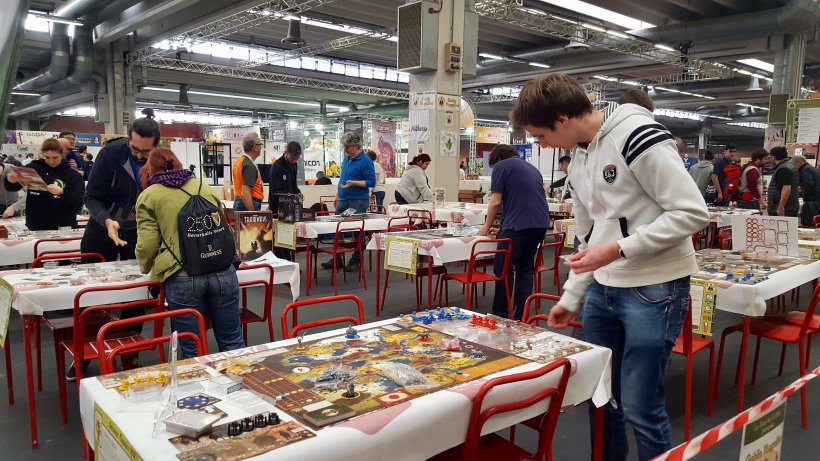
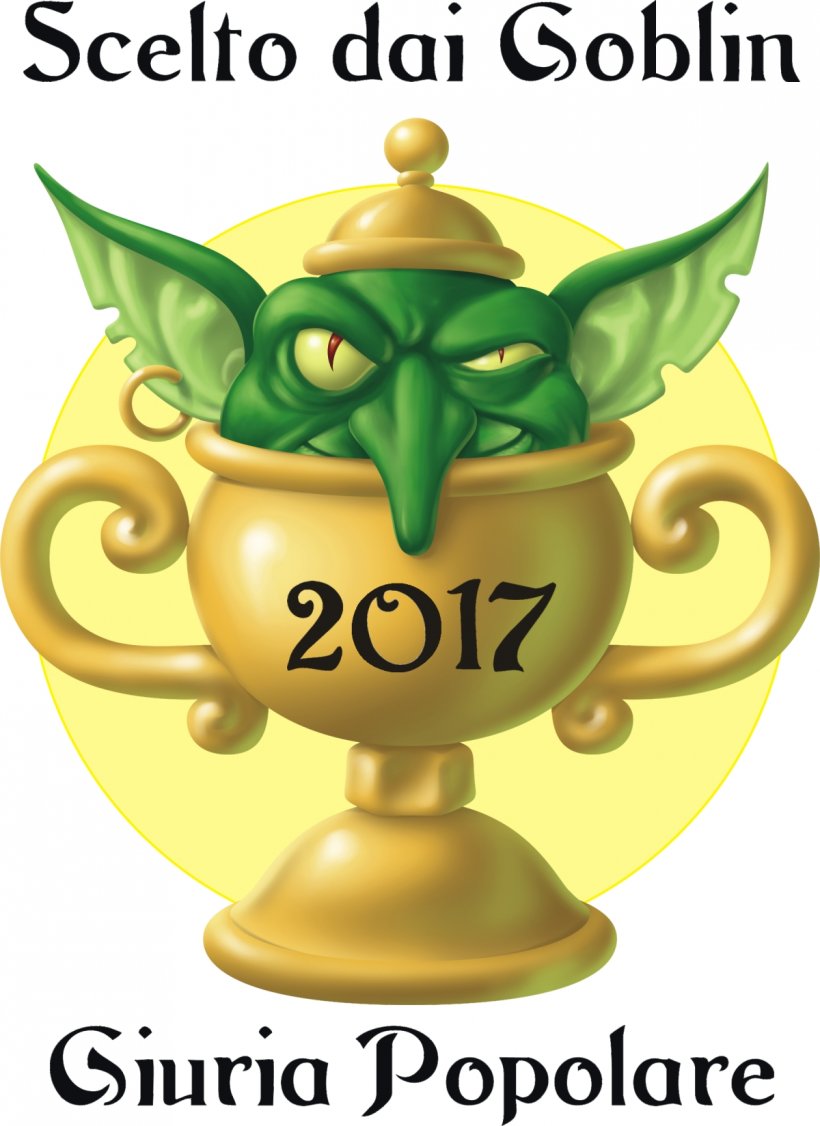
Molto bella, complimenti a Peppe74 per la chiacchierata con l'autore!
Ma fregeranno la scatola con il logo del premio?
Io ho letto il libro su Kickstarter di questo autore. Molto interessante e soprattutto traspare una passione per quello che fa e un rapporto stretto con i giocatori veramente raro e ammirevole.
Io ho letto il libro su Kickstarter di questo autore. Molto interessante e soprattutto traspare una passione per quello che fa e un rapporto stretto con i giocatori veramente raro e ammirevole.
sono anche particolarmente interessanti gli articoli sul suo blog sul perché non intende usare più ks e passare alla distribuzione classica.
Per scrivere un commento devi avere un account. Clicca qui per iscriverti o accedere al sito
Accedi al sito per commentare© 2004 - 2023 Associazione Culturale - "TdG" La Tana dei Goblin
C.F./P.IVA: 12082231007 - P.le Clodio 8, 00195 Roma
Regolamento del sito | Archivio | Informativa privacy e cookie | Contatti
La Tana dei Goblin protegge e condivide i contenuti del sito in base alla seguente licenza Creative Commons: Attribuzione - Non Commerciale - Condividi allo stesso modo, v.4.0. Leggi il testo sintetico, oppure il testo legale della licenza.